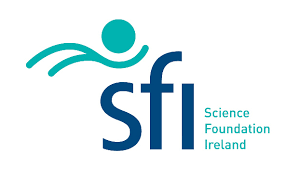RELEVANT
REducing stiLlbirth through bEhaViour chAnge iNtervenTions (The RELEVANT Study)
Rationale:
Stillbirth is one of the most devastating outcomes of pregnancy that expectant parents can face. In Ireland, a stillbirth is defined as an infant born weighing 500 grams or more or at a gestational age of at least 24 weeks who shows no signs of life
The stillbirth series published in the Lancet in 2016 highlighted the importance of focusing future stillbirth prevention efforts in high-income countries on targeting specific causes, risk factors, and vulnerable groups. In high-income countries, the majority of stillbirths occur prior to labour and are associated with placental pathology. However, previous research has shown that stillbirth is associated with a wide range of risk factors, including maternal behavioural risk factors. These including sleep position, smoking, alcohol intake, illicit drug use, high maternal weight and inadequate antenatal care attendance.
Considering that some of the mentioned maternal behavioural risk factors have the potential to be modified, there has been an increase in development and implementation of antenatal behavioural interventions targeting those behaviours to reduce the risk of stillbirth.
The RELEVANT STUDY is a doctoral research project funded by Science Foundation Ireland.
Aims:
The overall aim of this PhD is to build the evidence-based to inform the development of a behaviour change intervention to raise awareness of and reduce risk factors for Stillbirth in Ireland. To do so, a series of studies have been designed with the following objectives:
– To examine the available evidence in relation to risk factors for stillbirth.
– To assess the different online resources available to pregnant women and women who have experienced a pregnancy loss.
– To explore the qualitative literature published on facilitators and barriers to change the targeted behaviours (substance use, attendance at antenatal care, weight management).
– To explore first time mum’s experiences of following behavioural recommendations during pregnancy and experiences of education received in antenatal care as well as their knowledge about stillbirth and risk factors for stillbirth.
– To identify all interventions designed and conducted in the context of stillbirth prevention in high-income countries, and identify the Behaviour Change used in each one.
– To explore healthcare professionals knowledge about stillbirth and modifiable risk factors and their perceived barriers to communicate these with their patients in their care.
Principal investigator: Prof. Keelin O’Donoghue
Sub-investigators: Ms. Tamara Escañuela Sánchez, Dr. Karen Matvienko-Sikar, Dr. Sarah Meaney, Prof. Molly Byrne.




